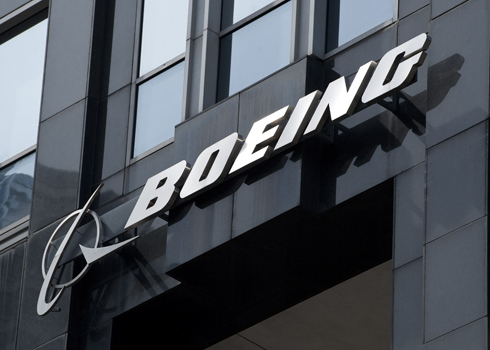An ugly spat between a huge corporation, organized labor, the White House, and a Tea Party governor whose union-busting rhetoric would make Chris Christie blush, is becoming the next national flashpoint in this year’s ongoing war on unions.
The dispute centers around a planned Boeing airplane production line for its 787 Dreamliner in South Carolina using nonunion labor. The National Labor Relations Board issued a complaint earlier this month looking to halt operation of the new plant after members of the International Association of Machinists at Boeing’s Washington state production line claimed the decision to expand outside the state was retaliation for previous strikes. The NLRB is demanding that Boeing open a second production line in labor-friendly Washington state.
Boeing responded that because the corporation is not closing its Puget Sound plant, the retaliation claims are “legally frivolous.” Boeing recently issued a further statement claiming it would have opened its South Carolina line regardless of labor conditions in Washington state. The case will come before an administrative law judge in June and Boeing can appeal that decision in federal court if it doesn’t go its way.
Given that the NLRB languished under the Bush administration — at one point the AFL-CIO called for it to be shut down — the NLRB’s complaint represented a coming out party of sorts for the revamped agency.
“I can’t think of anything this blatantly pro-unions in a long, long time,” union activist Rich Yeselson told TPM.
Leading South Carolina Republicans are sounding the alarm in response to the NLRB complaint, insisting that the decision imperils not only their state’s Boeing deal but “right to work” laws restricting union activity in states all over the country. The argument goes that if setting up shop in an anti-union state counts as punitive action against workers in pro-union states, then the same complaint could be applied almost anywhere.
“If successful, the NLRB complaint would allow unions to hold a virtual ‘veto’ over business decisions,” Sen. Lindsey Graham (R-SC) said in a statement. “Left to their own devices, the NLRB would routinely punish right-to-work states that value and promote their pro-business climates.” Graham is pushing legislation to defund the NLRB decision and a group of 19 GOP senators say they plan to block White House labor nominations over the Boeing suit.
Labor experts are less convinced that the move has such clear implications, claiming that Boeing clearly blundered by publicly tying their move to labor unrest.The NLRB’s complaint noted, for example, that a Boeing executive told the Seattle Times that the “overriding factor” behind the South Carolina plant “was that we cannot afford to have a work stoppage, you know, every three years.”
“This really pertains to a specific production line and specific threats,” labor historian Joseph McMartin told TPM. “It has been portrayed, I think consciously by those who are enemies of the National Labor Relations Act itself … to be something it is not.”
Harvard Law professor Ben Sachs noted that the NLRB under Obama is still finding its footing, making the complaint’s implications ambiguous for now.
“One possibility is this is just an odd case where, for whatever reason, we have management saying on the record that they’re doing this because they don’t like strikes,” he said. “But if it’s indicative of the NLRB’s view you can’t relocate to avoid unions it’s far more significant.”
In the meantime, you can expect the story to gather steam in the national conversation given the high-profile of the players involved. South Carolina Gov. NIkki Haley (R), who is considered one of the most sought after GOP endorsements in the 2012 and has made union busting a centerpiece of her agenda, recently demanded potential presidential candidates step into the fray.
“Every presidential candidate needs to weigh in on what is happening with NLRB and Boeing,” she told NRO. “I would expect the presidential candidates to speak up, to say that this is wrong, and also to go further than that: to say what they would do to make it right.”
At least one has obliged: Tim Pawlenty decried the NLRB decision last week in an NRO op-ed as an “outrageous overreach by the federal government.”
“Not only do we now have a law forcing people to buy a good or service (i.e. health care), the federal government is now dictating where companies can and can’t do business!” he wrote.
Haley is currently engaged in a separate lawsuit over the Boeing plant with the AFL-CIO and IAM, who say her anti-union rhetoric constitutes an unlawful attack on collective bargaining rights.
“There’s no secret I don’t like the unions,” Haley told the Associated Press in response to the suit. “We are a right-to-work state. I will do everything I can to defend the fact we are a right-to-work state. We are pro-business by nature. I want us to continue to be pro-business. If they don’t like what I said, I’m sorry, that’s how I feel.”






